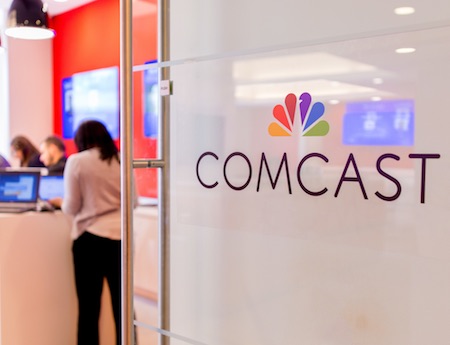Comcast Pans 'Expansive,' 'Harmful' FCC Set-Top Proposal

The smarter way to stay on top of broadcasting and cable industry. Sign up below
You are now subscribed
Your newsletter sign-up was successful
It took Comcast more than a hundred and fifty pages to tell the FCC everything it thought was wrong with chairman Tom Wheeler's proposal to "unlock" MVPD set-top box info to third-party navigation devices.
And that was a lot, including that it exceeds FCC authority, is illegal, will increase consumer costs, endangers content protection, jeopardizes security, facilitates piracy, weakens consumer privacy protections, and creates an unworkable standards-setting process.
That came in Comcast’s expansive comments at the FCC (initial comments on the proposal were due April 22).
Even the summary is close to a dozen pages, but the takeaway is that the proposal will produce some of the most expansive MVPD regulations every proposed.
Rather than simply meting a statutory directive (Sec. 629 of the Telecommunications Act) to make sure navigation devices are commercially available, Comcast says, the FCC is forcing MVPDs to unbundle their service and "provide new Commission-mandated standardized Information Flows” for free to third parties so that the third parties can create their own separate, derivative services..."
That, says Comcast, runs counter to the plain language of that statute, as well as prior court and FCC interpretations and the legislative history.
That plain language and history, says Comcast, is that Congress wanted to promote the availability or retail equipment to access an MVPD's services over the MVPD's network.
The smarter way to stay on top of broadcasting and cable industry. Sign up below
Comcast argues the market is already offering alternative navigation options aplenty. Not surprisingly, it used as an example its launch of a its just-announced Xfinity TV Partner Program to "expand the range of retail devices its customers can use to access their Xfinity TV service, with Samsung as the first smart TV manufacturer to join the program."
Comcast says the FCC has "inexplicably" ignored the apps-based approach to accessing content that the marketplace is driving, and instead is steering toward a "totally theoretical and much more intrusive regulatory approach."
President Obama, taking a page from his very public support of Title II reclassification of Internet access, has come out publicly for the FCC's set-top approach. But Comcast says the White House has offered no more credible support for its position than the FCC did offering the proposal.
Comcast said it was trouble by that lack of support, but equally troubled by an excess of speed.
"While claiming it is attempting to build a complete record, the Commission already appears to have made up its mind and is barreling forward on an accelerated timeframe toward adopting this alternative 'Set-Top Box Mandate' approach, which is preferred by certain entities [supporter Google has been the poster-target for many proposal critics] pushing their own business interests at the expense of consumers, MVPDs, programmers, and content creators."
Comcast says it is disappointed that the White House has joined the rush to judgment and has done so while ignoring the proposals flaws, including notably making MVPDs "wholesalers of raw programming," the fact, at least in Comcast and a lot of other commenters' reckoning, that it violates copyright laws.
"There can be no mistake that one of the key goals of the Commission’s proposal is to eliminate any role for MVPDs in the presentation of their own services on third-party devices and apps," Comcast said.
Contributing editor John Eggerton has been an editor and/or writer on media regulation, legislation and policy for over four decades, including covering the FCC, FTC, Congress, the major media trade associations, and the federal courts. In addition to Multichannel News and Broadcasting + Cable, his work has appeared in Radio World, TV Technology, TV Fax, This Week in Consumer Electronics, Variety and the Encyclopedia Britannica.

